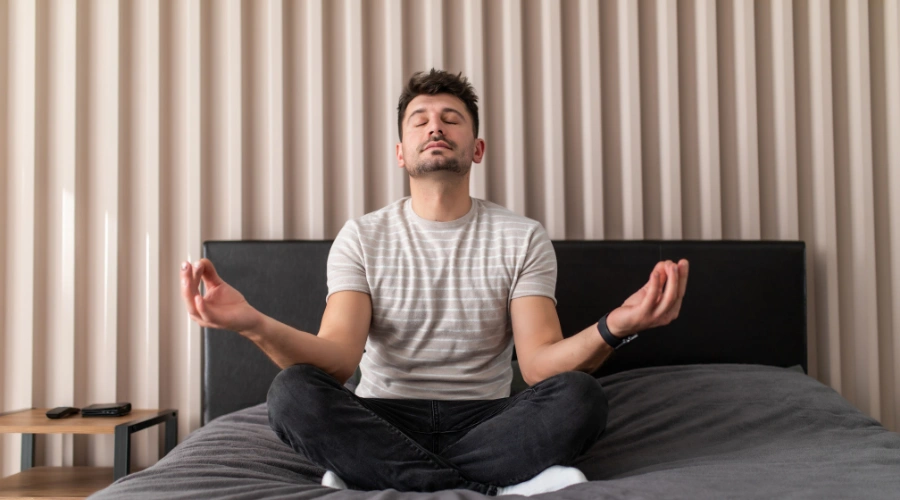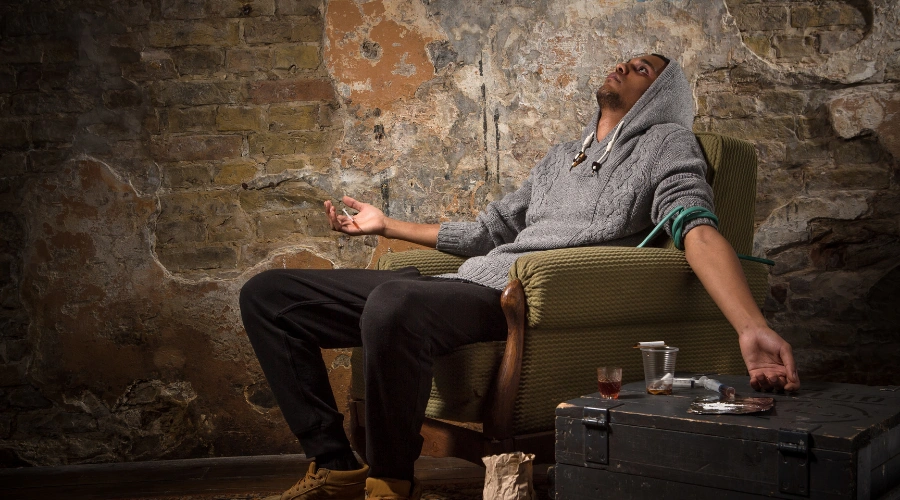Reasons Cocaine Abuse Can Cause Fatigue for Some People
Cocaine is a powerful stimulant drug. Many people who use cocaine or crack cocaine do so to help them stay awake.
So, when you feel extreme fatigue, you might wonder: How and why does cocaine make me tired?
It is true that cocaine can cause fatigue for some people. Unfortunately, many people start to use more cocaine (or other stimulants) to combat tiredness when it occurs. This contributes to the cycle of addiction and can run the risk of overdose.
South Shores Recovery is here to help you break free from cocaine abuse. Let’s discuss how cocaine affects sleep first. Then, we’ll talk about how treatment helps.
Why Does Cocaine Make Me Tired?
Multiple factors may contribute to the link between cocaine and daytime sleepiness:
Why Does Cocaine Cause Sleep Deprivation or Trouble Sleeping?
Using cocaine can wreak havoc on your body’s sleep-wake schedule. The stimulating effects of the drug can linger for a while after you use it. Cocaine is known to alter both sleep quality and sleep quantity. Both of these things can make you feel tired.
Many people find that this becomes a pattern. Sleep disturbance is linked to cocaine seeking, but cocaine itself can cause sleep disturbance. You use more of the drug to wake up, but it only disrupts your sleep further.
The Cocaine Comedown or “Crash”
Initially, cocaine increases the neurotransmitters dopamine, norepinephrine, and serotonin. After repeated use, the body experiences an overall depletion of these neurotransmitters. Often, the depletion of these feel-good chemicals is a contributing factor to chronic use.
Neurotransmitters like serotonin play a crucial role in regulating your sleep. This, paired with ongoing cocaine use, can cause ongoing sleep disturbance in cocaine users that may take some time to overcome before being able to return to restful sleep.
Strain on the Body
Cocaine and other stimulants can strain the body’s systems intensely. The drug is associated with cardiovascular health problems, including electrocardiographic abnormalities, increased blood pressure, acute myocardial infarction, and arrhythmias.
Using cocaine can also impair the immune system and negatively affect the kidneys, brain, digestive system, lungs, liver, and musculoskeletal system. The effects of cocaine go far beyond fatigue and leaving bags under your eyes that grow darker and darker. Overall, cocaine is hard on your body, which may contribute to fatigue in chronic users.
How Cocaine Addiction Treatment Helps You Break the Cycle

Continued abstinence from cocaine can help improve your sleep quality so that it’s comparable to that of healthy sleepers. Getting professional help for cocaine abuse can help you achieve the ongoing abstinence necessary for your brain and body to heal.
Recovering from drug abuse of any kind is a process. It takes time. Our team will be here to help you navigate challenges like difficulty falling asleep or intense cravings for the drug, which may arise during the recovery process.
Treatment for Cocaine Abuse at South Shores
We offer a full continuum of care for cocaine addiction. This includes detox, inpatient, and outpatient programs. Here’s a little bit about how our approach can help:
Medical Detox for Cocaine
Many people stay in a cycle of cocaine use in part due to withdrawal symptoms. The medical detox program at our center can help you get through cocaine withdrawal successfully. Our team can provide medications, including non-addictive sleep aids and other treatments (e.g., assistance with dehydration) to help our clients achieve restful sleep, as needed.
Detox is an initial step in treatment for many people, usually lasting for somewhere from a few days to a week or two. It does not replace the need for therapy programs, such as our inpatient and outpatient rehab programs for addiction.
Using Effective Therapy for Cocaine Use
The inpatient and outpatient programs at our center use a blend of evidence-based and complementary therapies for substance abuse. In addition to other parts of our treatment schedules, groups and individual therapy sessions are a core part of our programs.
In group therapy, you will learn new skills, process emotions and past experiences, and discuss relapse prevention. During individual therapy sessions, you’ll work one-on-one with a therapist and focus on your personal goals.
If sleep is a concern for you outside of cocaine use and in recovery, it is worth discussing with your individual therapist or another healthcare provider. By gaining recovery tools in therapy sessions, you’ll have the skills you need to sustain sobriety or get back on track.
Sleep Hygiene and Lifestyle

Our treatment professionals use a whole-person approach. Instead of focusing on abstaining from drug use alone, we help you create habits that support all aspects of your mental and physical health. This can include sleep hygiene practices.
For example:
- Relaxation techniques: Establish a bedtime routine that helps you unwind. This may entail gentle stretching, white noise, reading, breathing exercises, or meditation.
- Removing electronics from the bedroom: Take all devices out of your room about an hour before bed. This is recommended by sleep experts, as blue light can suppress the production of melatonin (a sleep hormone) in your body.
- A sleep schedule: Creating a sleep schedule can help you and your body stay on track. Many people find that it is beneficial to go to bed and wake up at around the same time each day.
Nutrition, physical activity, and other lifestyle factors can also play a role in sleep and overall well-being. We focus on all of the above.
Reliable Help for Polysubstance Use
Sometimes, people use downers like alcohol, opioids, or cannabis in attempts to alleviate disturbed sleep from cocaine use. In fact, polysubstance use is very common in cocaine users, who often use other drugs to help them come down.
Unfortunately, combining cocaine with other substances can be extremely dangerous. Mixing cocaine with other illicit drugs increases the risk of overdose. We acknowledge the reasons for polysubstance use and are here to help you overcome it.
Dual Diagnosis Treatment and Cocaine Abuse
Like lifestyle considerations, addressing factors that cause or contribute to addiction is an integral part of our whole-person approach. Many people struggling with cocaine addiction also live with a mental health condition, like depression or anxiety.
If this is true for you, you may benefit from dual diagnosis treatment at South Shores Recovery. Dual diagnosis treatment addresses co-occurring disorders alongside cocaine abuse to help facilitate the best possible treatment outcomes.
Aftercare Planning for Continued Sobriety
Before your time at South Shores ends, we’ll help you create an aftercare plan. This may include ongoing therapy, support groups, relapse prevention strategies, referrals to sober housing, and other resources that ensure your unique needs are met as you enter the next stages of your journey.
Call South Shores Recovery for Help to Put Down Cocaine

While many people use cocaine to aid alertness, the adverse effects associated with the harmful drug are not something to overlook. Cocaine can hurt your sleep, interpersonal relationships, health, and all other aspects of your life.
South Shores Recovery is here to help you or your loved one overcome cocaine abuse. With a full continuum of care available, we’re here to provide guidance through each and every stage of the recovery process.
Call our admissions line today for more information about our programs. Our team is here to start the intake process or answer your questions about cocaine treatment options now.
FAQs About Cocaine and Sleep
Does cocaine withdrawal affect sleep?
Sleep disturbance is a common cocaine withdrawal symptom. Some people are very tired and experience hypersomnia during the cocaine withdrawal process. Others go through insomnia, which may contribute to fatigue.
How do I reverse the effects of cocaine on sleep?
After acute withdrawal, a significant portion of people recovering from cocaine abuse still experience post-acute withdrawal symptoms like insomnia. Continued abstinence (including during this period) should help you reverse the effects of cocaine on sleep.
How long does it take to reverse cocaine’s effects on the brain?
It depends. Some of cocaine’s effects on the brain reverse quickly when you stop using the drug, whereas others take longer.
Is sleep disruption a permanent effect of past cocaine abuse?
Some serious health concerns from cocaine use can be permanent, even when you’ve been abstinent for long periods of time. However, sleep problems caused by the drug tend to resolve in those who get and stay sober.


Recent Comments